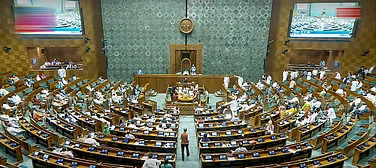Tourism in Kerala is bearing the burnt of the sudden occurrence of Nipah virus in a section of the state. However, locals and tourists believe that the situation has been falsely portrayed by the media.
News of the presence of the virus was first reported from Kozhikode earlier this week, and now, at least 12 deaths have been confirmed to have taken place due to the "rare and deadly" virus. As the death toll is rising each day, a wave of panic has gripped the state, since the infection spreads through human contact.
Though May-June-July-August months are generally considered off-season, the state used to witness large number of domestic tourists as well as those from Middle East countries like Saudi Arabia and UAE during the period.
"In Northern India, it is the holiday season now, due to which we get many tourists from there. However, the news of the Nipah virus has led to almost 50 to 60 per cent cancellation of bookings. We are also getting inquiries from Gulf countries, as the Arab holiday season is approaching. It has created unnecessary panic," said Tourism Profession Club Secretary Paul.
Echoing a similar thought, Ajay Kumar, a local tourist guide said false portrayal of the situation is hampering his business.
"In Kochi, there is no need to panic as the area is safe from the virus. Nipah has spread only in a small section of Kozhikode. However, media is portraying it in such a way that tourists believe the whole of Kerala is affected by the disease. I have lost business due to this, as travelers are cancelling trips booked even for the next month," he added.
Rajesh Pillai, a Kochi-based tour operator, said cancellations have been a daily affair since the rare virus claimed 11 lives in the two districts of Kozhikode and Malappuram.
Businesses worth Rs 30-40 lakh has been affected during May-June months, he said.
"The Nipah issue has affected the industry so badly. Even the bookings for the month of August and September have been cancelled," he added.
"Tourists are saying that they cannot take risk. They are also asking if any assurance can be given for their safety. They believe that the entire state is facing threat from the Nipah virus," Pillai, the Kerala head of a leading tour group, said.
"The visitors are not prepared to believe that the outbreak had happened in a tiny village in Kozhikode and only some districts have been affected due to it. Unfortunately our media reports gave them such an impression," he said.
According to reports, tourists in the area, although unfazed by the virus, are taking a number of precautionary measures in the wake of the disease.
"We are trying to eat home cooked food for our own safety. We are avoiding excessive amounts of hotel food and fruits for now. We are also planning to avoid visiting Kozhikode at this time," a tourist said.
E M Najeeb, senior vice president, Indian Association of Tour Operators (IATO), said the industry has suffered a huge setback due to the outbreak of the virus, but expressed hope that things would be improved soon.
"Cancellation is a reality...The virus outbreak has hit the tourism sector. It has created some anxiety among tourists to visit the state. But, I hope that things will improve soon after the situation comes under control," he said.
On the other hand, regular income of the fruit seller's have also gone down. According to the Kerala Fruits and Merchants Association, there has been a 40 per cent dip in the sales in the state due to the outbreak of virus, while in Kozhikode district alone, where the virus first erupted, there has been a fall of 90 per cent in sales.
So far, the virus has claimed 12 lives in Kerala, following which the state's health department issued an advisory for people traveling to the state, and urged travelers to be extra cautious while visiting Kozhikode, Malappuram, Wayanad and Kannur districts.
A similar note of caution has also been issued by the Himachal Pradesh health ministry on Thursday after more than 18 dead bats were discovered on Wednesday in the premises of a government school in Nahan, triggering a panic among locals.
For those unversed, Nipah virus, spread by fruit bats, causes communicable disease and is fatal for both animals and humans.
The symptoms of the disease include fever, headache, drowsiness, respiratory illness, disorientation and mental confusion.
According to the World Health Organisation (WHO), these signs and symptoms can progress to coma within 24-48 hours.
(With Agency Inputs)


























